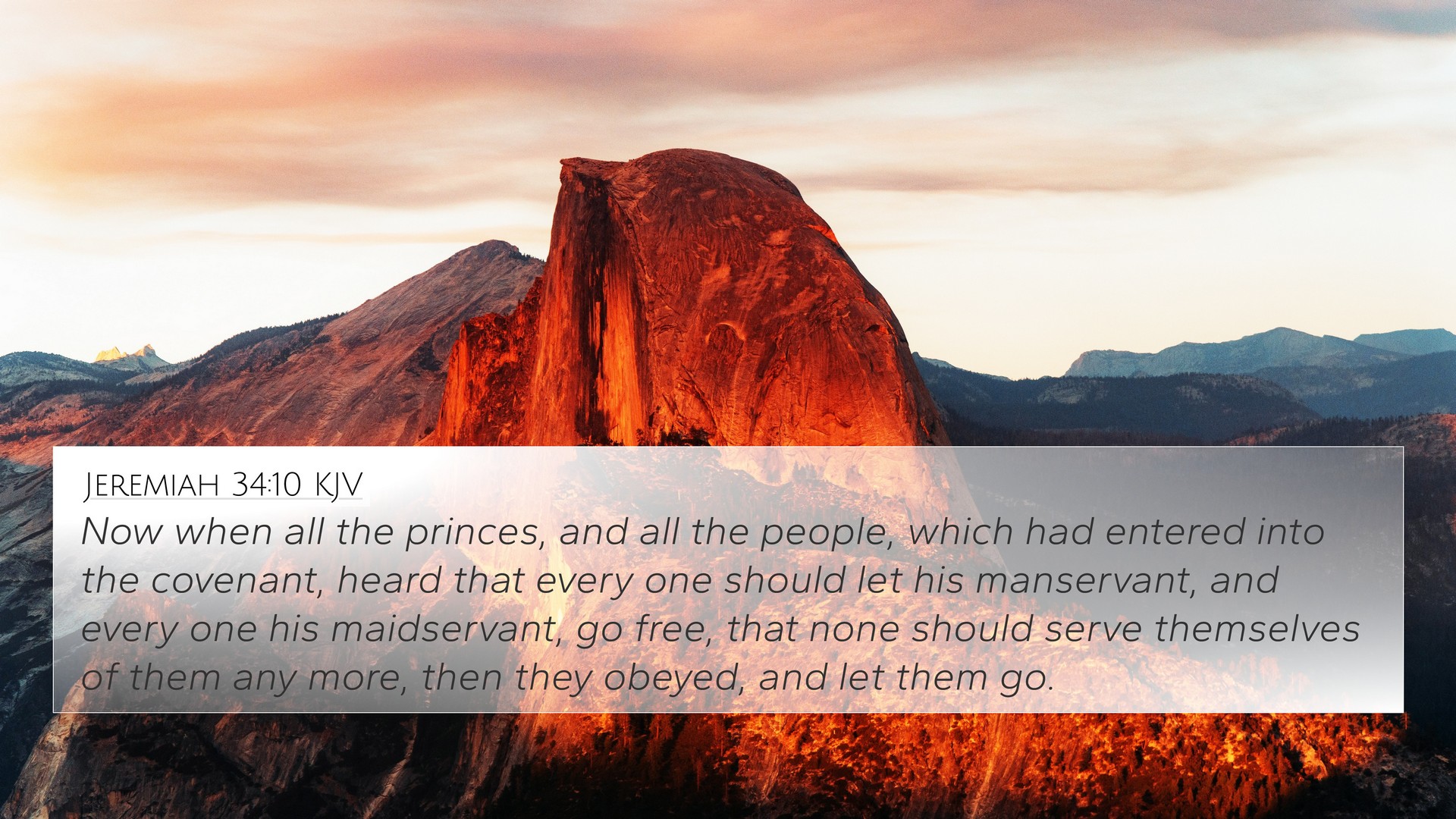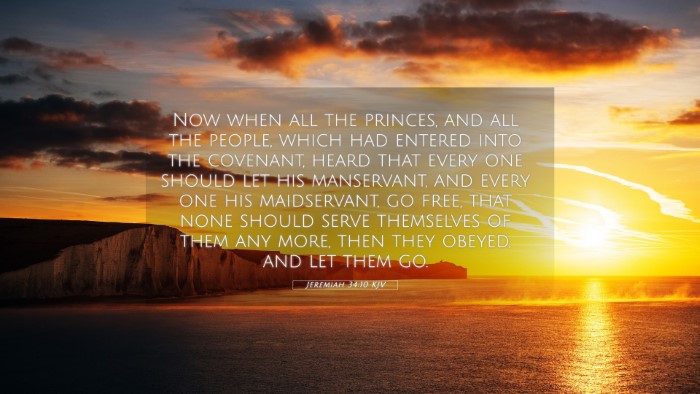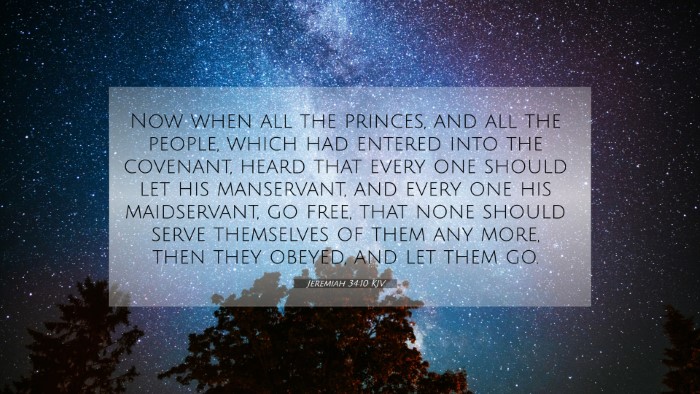Understanding Jeremiah 34:10
Jeremiah 34:10 states: "And all the princes and all the people, which had entered into the covenant, heard that every one should let his manservant and every one his maidservant go free, that none should serve himself of them, to wit, of a Jew his brother." This verse is significant in understanding the social and spiritual implications of God's commands to His people regarding liberty and the treatment of servants.
Contextual Overview
To grasp the full meaning of this verse, we engage with the broader narrative within the Book of Jeremiah. The Prophet Jeremiah spoke during a tumultuous time for Israel, marked by impending judgment and destruction due to their disobedience to God. This setting provides crucial context for the covenant made regarding the release of servants.
Commentary Insights
- Matthew Henry: Henry emphasizes that God's commandments about freedom were rooted in justice and mercy. The release was not merely a temporal decree but a divine mandate aimed at reflecting God's character and desires for His people.
- Albert Barnes: Barnes elaborates on the legal and social aspects of the covenant. The prince's actions reflect a societal expectation and responsibility towards slaves and servants within the framework of Jewish law. The duty to release them was both a moral obligation and a societal norm.
- Adam Clarke: Clarke comments on the importance of the covenant's observance, noting that failure to uphold such agreements led to national consequences. The verse highlights a moment of potential obedience among the people that could appeal to God's merciful character.
Thematic Connections
Jeremiah 34:10 is interwoven with themes such as freedom, justice, mercy, and covenant faithfulness. These concepts resonate throughout the Scriptures and connect directly with various biblical themes.
Cross References
- Leviticus 25:39-41: Discusses the condition of servitude and the requirement for release during the Year of Jubilee, forming a basis for understanding servitude in Israel.
- Deuteronomy 15:12-15: Outlines the laws concerning the release of Hebrew slaves every seven years, highlighting God’s emphasis on freedom.
- Isaiah 58:6: Calls attention to genuine fasting and liberty, reinforcing the principle of freeing the oppressed.
- Matthew 5:7: "Blessed are the merciful: for they shall obtain mercy," demonstrating the reciprocity of mercy and compassion, akin to the treatment of servants.
- Galatians 5:1: Encourages believers to stand firm in their freedom in Christ, connecting the thematic liberation found in Jeremiah with New Testament teachings.
- Luke 4:18: Reflects the mission of Jesus to proclaim liberty to the captives, echoing the principles established in Jeremiah regarding freedom.
- Jeremiah 29:11: Speaks of God’s plans for His people, encompassing hope and future, aligning with His desire for their freedom and well-being.
- Romans 6:22: Discusses the outcome of being freed from sin and becoming servants of God, illustrating the spiritual aspect of liberation.
- 1 Corinthians 7:21-23: Advises on the conditions of slavery and freedom in the New Testament context, unraveling continuity in God's plans through time.
- Philemon 1:16: Teaches about the treatment of a returning slave, adding depth to the New Testament application of freedom and brotherhood in Christ.
Practical Implications
The implications of Jeremiah 34:10 extend beyond historical context; they provoke meaningful discussions on social justice, humane treatment of workers, and the importance of honoring one’s commitments. Such values should resonate deeply within the lives of believers today as they seek to embody God's character in their social interactions.
Conclusion
This verse serves as a reminder of the covenantal relationship God has with His people and the ethical responsibilities required of them. Hence, in studying this verse and its connections, we learn valuable lessons about mercy, justice, and the opportunity for redemption that pervade both the Old and New Testaments.










